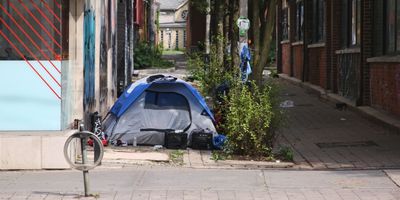HARD NUMBERS: Ontario’s ex-cons struggle to find homes, First Nations challenge carbon tax, “Super pigs” eye the border, Alberta cashes in on TV
17.3: The percentage of prisoners released from Ontario jails who have nowhere to live has nearly doubled over the past five years, reaching 17.3% in 2021-2022, the most recent annual data show. Experts blame a triple crisis of housing affordability, mental health, and addiction, and warn that there is a high correlation between homelessness and recidivism.
133: A group representing 133 indigenous groups in Ontario filed a lawsuit today challenging the federal government’s carbon tax, which they say disproportionately burdens their communities. The tax, a cornerstone of Justin Trudeau’s climate agenda, has seen growing local pushback, especially after the PM excluded home heating oil from the tax in October in a move viewed as a sop to his constituents in Atlantic Canada, where the fuel is most common.
62,000: As if there weren’t enough to worry about in the world, the US is now bracing for an invasion of “super pigs” from Canada. More than 62,000 of the voracious, destructive, and nearly unkillable creatures have already been spotted roaming the US-Canada borderlands. They are the crossbred descendants of wild boars that Canadian farmers released into the wild after the boar meat market crashed in the early 2000s. Experts say the pigs are an “ecological train wreck.” We can’t read this story without hearing “Super Pig” to the tune of Rick James’ “Superfreak” — and now … neither can you.
141 million: And the last (of us) shall be first … The post-apocalyptic HBO show “The Last of Us” generated $141 million for the province of Alberta, where it was shot in 2021-2022. That makes it the most lucrative TV show ever shot in Canada. Next season, the drama moves to British Columbia.